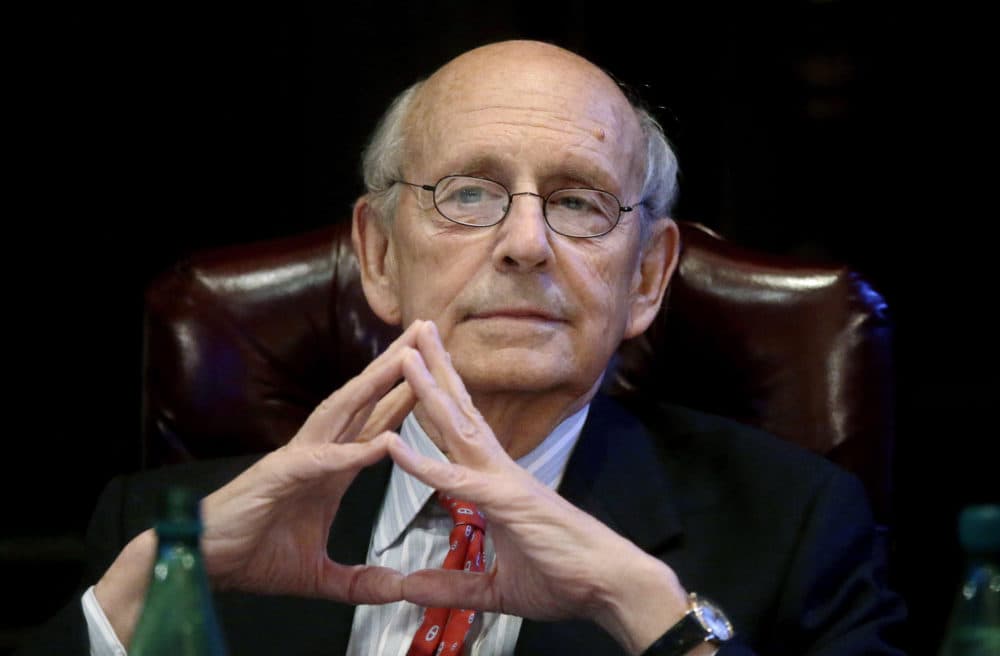Advertisement
Commentary
Stephen Breyer was a justice for ordinary people

It’s official: Supreme Court Associate Justice Stephen Breyer plans to retire at the end of the court’s current term, setting in motion the Biden administration’s first chance to nominate a Supreme Court justice to the bench.
In the best tradition of justice, Breyer has paid careful attention to the implications of the court’s rulings for ordinary people and for the administration of justice. From protecting abortion rights to condemning the death penalty to safeguarding free speech and civil rights, Breyer has long been a voice for civil liberties, human dignity, the right to vote and good governance.
Consider Breyer’s holding in Mahanoy Area School District v. B.L. — an ACLU case involving a high school cheerleader and her post on the social media platform Snapchat. One of her cheerleading coaches saw the post, which used an expletive, and suspended her from the team for a year — even though she had posted on a weekend, while off school property.
In a landmark decision last year, Breyer reaffirmed the importance of free speech rights of young people and students across the country, holding that school authorities must respect students’ rights to express themselves outside of school — including their right to express dissenting or unpopular views. Most importantly, he noted, “America’s public schools are the nurseries of democracy. … Thus, schools have a strong interest in ensuring that future generations understand the workings in practice of the well-known aphorism, ‘I disapprove of what you say, but I will defend to the death your right to say it.’ ”
Or consider Glossip v. Gross, a 2015 capital punishment case in which Breyer wrote a powerful dissent and called for the court to reconsider the constitutionality of the death penalty. In the opinion, he suggested that the death penalty has become both cruel and unusual, in violation of the Eighth Amendment to the Constitution. Since then, he has dissented in several other death penalty cases, pressing for an end to the practice of state-sponsored killing.
America’s public schools are the nurseries of democracy.
Justice Stephen Breyer
At a time when public approval of the Supreme Court is at an all-time low, Breyer has staunchly defended the integrity of the court. In a speech last year, after the court rejected former President Donald Trump’s efforts to overturn the 2020 election results, Breyer argued that “it is wrong to think of the court as another political institution."
Whether Breyer has since changed his mind, we may never know for sure. But he would be entitled to do so, given the court’s turn toward political ideology in recent months. Breyer is a justice who rejects labels like “liberal” and “conservative,” and ultimately upholds the law to determine what is right and just. In contrast, the recent Trump appointees to the Supreme Court are hellbent on pushing through a radical right-wing ideological agenda.
Breyer ... called the decision to allow the Texas [abortion] ban to stay in place 'very, very, very wrong.'
No issue is more telling than abortion rights, where the Supreme Court has most recently failed to stop Texas’ unconstitutional abortion ban and bounty-hunting scheme. Indeed, Breyer — a frequent author on and reliable defender of reproductive rights — called the decision to allow the Texas ban to stay in place “very, very, very wrong.” And at the December 2021 hearing in Dobbs v. Jackson Women’s Health Organization — a case where Mississippi asks the highest court to overturn Roe v. Wade — Breyer quoted from a 1992 ruling which reaffirmed Roe: “To overrule under fire in the absence of the most compelling reason, to re-examine a watershed decision, would subvert the court’s legitimacy beyond any serious question,” he said.
Make no mistake: The next justice will help determine the course of our nation’s future, and in particular, the freedoms and rights of its people. The president and Congress must appoint a nominee who will respect and defend the Constitution, the fundamental institutions of our democracy and the rights of the most vulnerable among us.

